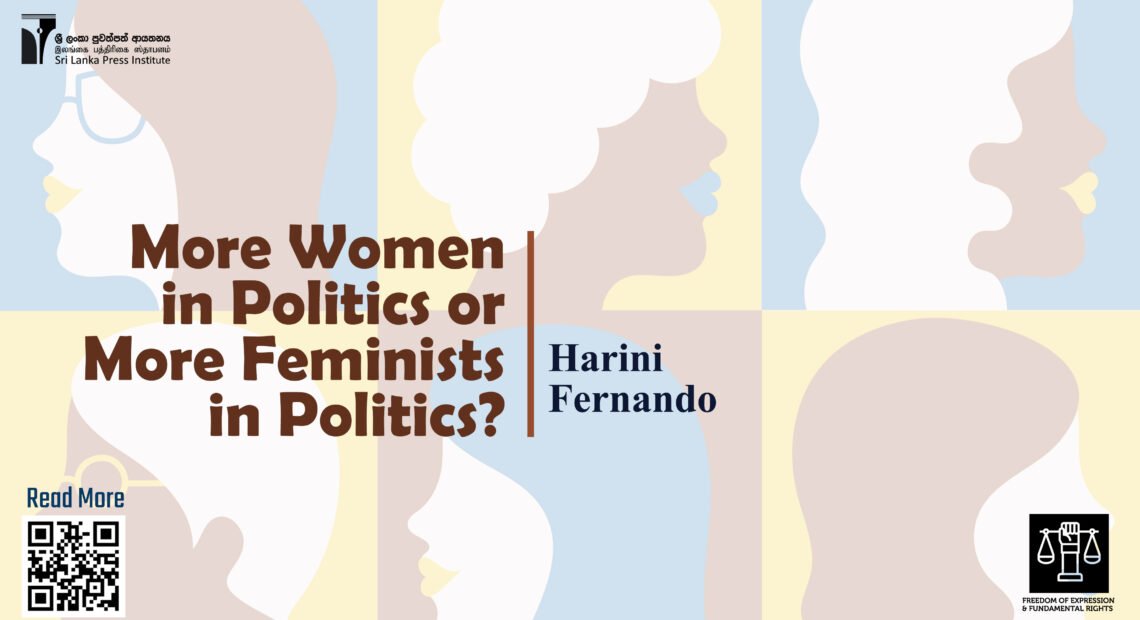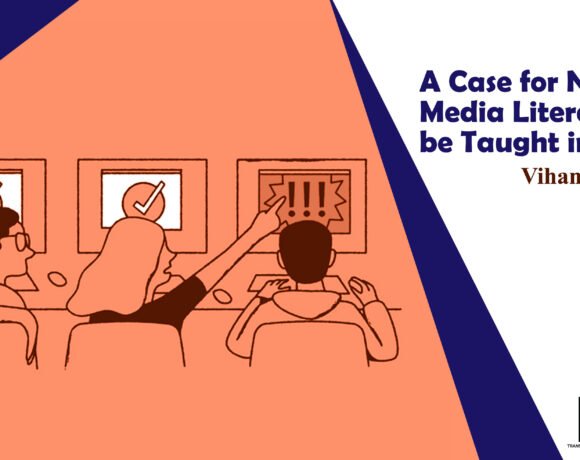
More Women in Politics or More Feminists in Politics?
Harini Fernando
During the past few weeks there have been many discussions in Sri Lanka with regard to the taxes on sanitary napkins. During the debate over the reduction of the mentioned tax, one of the female members of parliament (MP) who is a former actress, mentioned that all citizens in this country, including women, want better national security in the country and not a reduction in taxes on sanitary products. Let us not get into the fact that sanitary napkins are essential goods and the naivety and insensitivity of the MP’s argument. For a country which has a female population of over 50%, women are underrepresented in the parliament with just 6% of MPs being female. Even among them when women parliamentarians make such statements, they become the laughing stock for sensible citizens due to their lack of sensitivity towards issues that actually concern the female population of the country.
We create discourse around the need for more women in parliament in order to bring in gender-sensitive laws and address key issues that women face and we advocate for quota systems to bring more women to represent the legislature. However, some female MPs’ responses to women’s issues makes one wonder whether it is actually a good idea to advocate for more women in politics when they lack basic awareness about such issues.
Of course, one reason for this is in Sri Lanka, the majority of women entering politics are connected to some former or present male politician. Therefore, they come into politics to either carry forward their father’s or husband’s legacy or to increase the political power of their family. As a result, they may be required to act as a proponent of the ideologies advocated by their male relatives. Hence, there may be hindrances for them when utilizing their political powers the way they want.
For a country that boasts the world’s first female Prime Minister, it is an embarrassment that we have not seen any significant improvement in the number of women parliamentarians and the rate at which women’s issues are addressed. We are still a country that is hung up on its cultural heritage and a backwards patriarchal mindset. This is the reason why we still have not able to implement proper abortion laws and why marital rape is still not considered a criminal offence in Sri Lanka. When these issues are taken up in a male-dominated parliament, most men bring in religious perspectives and cultural values to show that these are not issues that should concern women. Changing these mindsets would probably take decades and even centuries, but there need to be structural changes to alter these ideas inculcated in the minds of citizens.
If we look at global leaders such as the Canadian Prime Minister Justin Trudeau and the former President of the United States of America, Barack Obama, they identified themselves as feminists and acted as advocates, promoting women’s rights. Therefore, even in countries such as ours, what we need are more feminist leaders who can understand the issues faced by all citizens, whether they affect men, women, children and non binary genders.
A politician, regardless of gender, should be able to empathise with the issues of citizens in the country and respond accordingly in order to provide sustainable solutions. Therefore, it is unfair to expect this only from women politicians. But, issues such as period poverty and sexual harassment are issues faced by almost every woman. So their ability to relate to such problems and understand them would be much higher than that of a male politician. Nevertheless, this does not mean that a man is any less competent in addressing women’s issues.
Therefore, as a country we must ensure that there are more feminists contesting future elections, as opposed to more women in parliament. While there should be more women to represent half of the country’s population, if women’s issues are to be adequately addressed there should be more feminists in our administrative and legislative branches.








